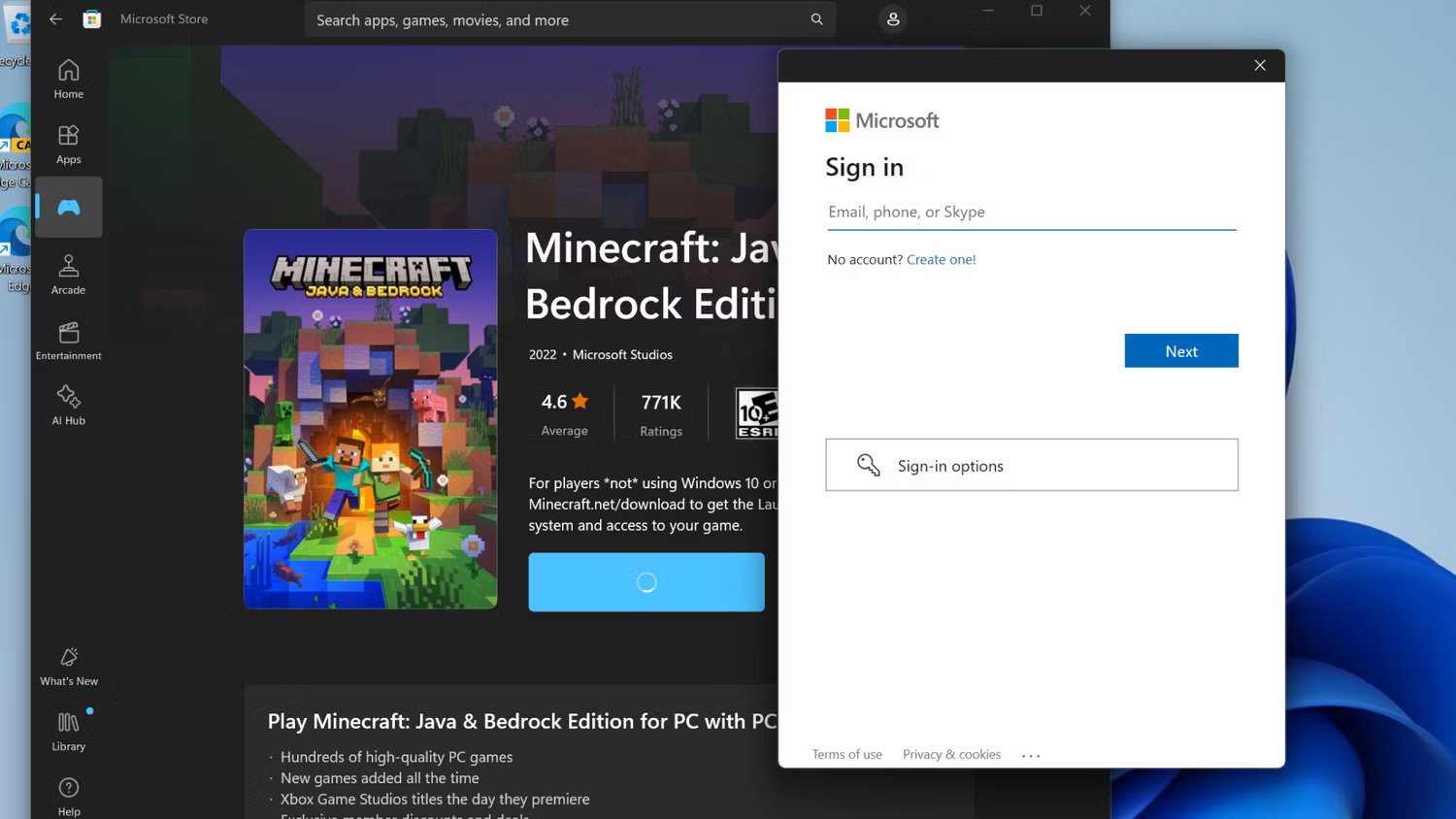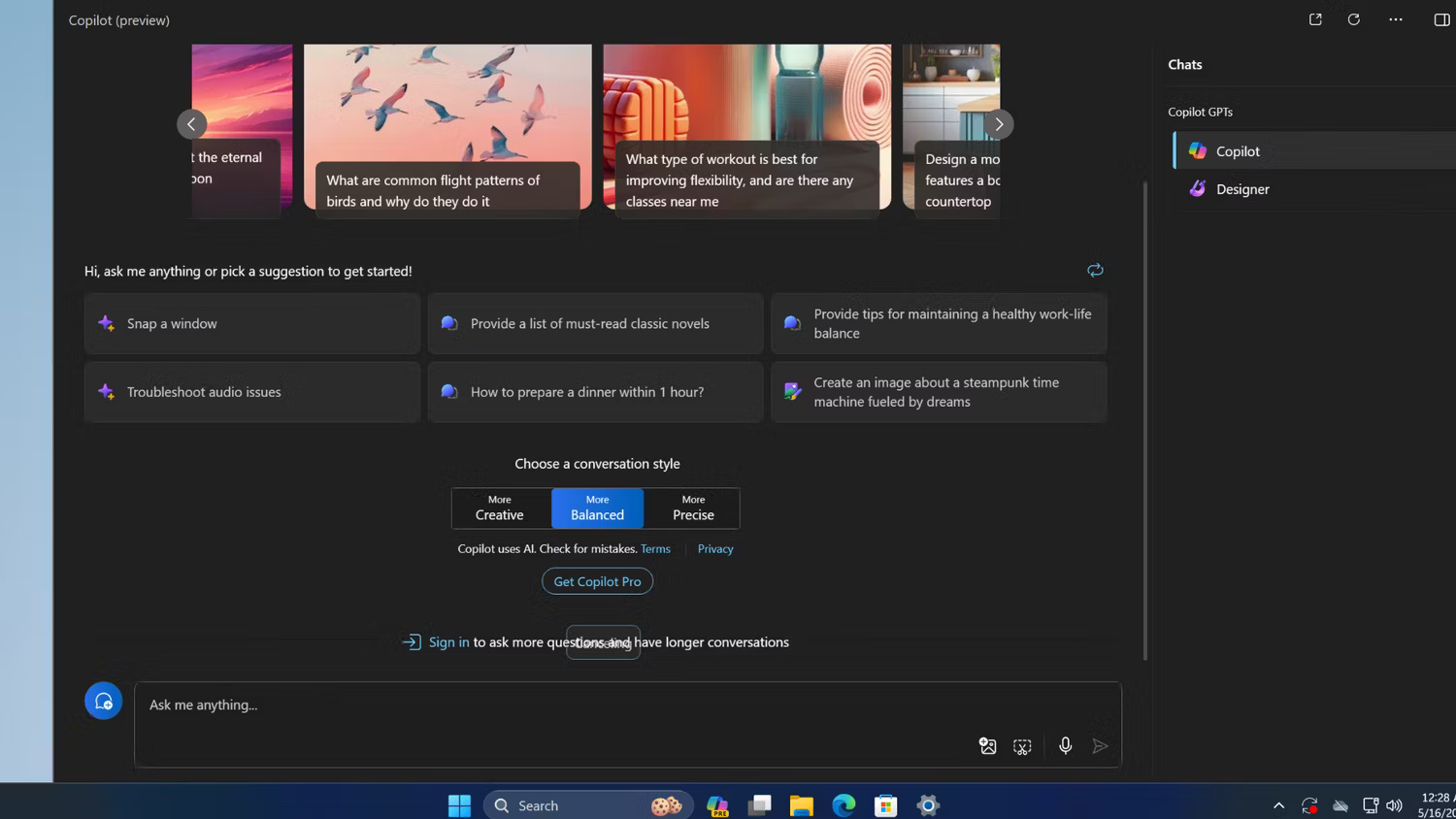Pros and cons of using a Microsoft account with Windows
It allows users with accounts to sign in to a variety of services and applications with a single account, but its greatest power arguably comes when used with Windows. Although convenient, you may not want to use it for many reasons. Here are some pros and cons of using a Microsoft account.
Advantages of Microsoft account
Sync settings across all devices
It can take hours, days, or even weeks to set up a new computer just the way you want it. Operating systems are becoming more and more complex, which means the number of settings to customize and personalization options are almost endless.
Signing in to your machine with a Microsoft account means all of this personalization moves with you and is automatically displayed on your new PC.
Synchronization capabilities also extend beyond the PC. If you use a Surface tablet or any other Windows device, your customizations will transfer there as well. Microsoft has added a Windows Backup application that helps check and manage the sync status of system settings, authentication information, network details, and files.

Windows Store apps
The Windows Store has been criticized since its introduction in 2012 but has improved a lot since then. In the early days of Windows 10, you could use the Windows Store without an official Microsoft account. That is no longer possible on Windows 11; any workaround has significant limitations.
At least using a Microsoft account with the Windows Store has some benefits. If you install an application on your laptop, the application's icon will automatically be placed on your computer's Start menu and just click on the application to install. You won't have to search the store a second time. A Microsoft account is also required to purchase games or apps from the Microsoft Store. Without an account, you cannot install premium applications.

Copilot
Microsoft introduced Copilot in Edge, then added it to Windows 11 and 10. This is an AI assistant that can satisfy curiosity by summarizing results on the web, although Copilot is not yet complete. You can also use it to change settings in Windows 11, like turning on dark mode, without going into the Settings app.
However, Copilot in Windows 11 requires a Microsoft account to work properly. If you plan to use it with a local account, it will work but block you after doing 10 searches. You will see a warning with the option to sign in to continue using it. Using a Microsoft account allows you to experience Copilot with all its features, including larger character input limits.

OneDrive
Using a Microsoft account on Windows also unlocks the full potential of OneDrive. The service started life as a cloud-based storage solution but its list of features has grown exponentially and now offers Microsoft account users benefits that go beyond just accessing the service. Instant access to their files.
Using your account, you can remotely access all files saved on your computer from any computer in the world. You can even access network locations if they are in your PC's library or mapped as a drive. And you can automatically send photos you take on your phone to the cloud and then to your OneDrive folder on your PC. Finally, it will also enable real-time collaboration on Office documents.
Passkeys
Passkeys are a great way to log into websites and apps without entering a password. Microsoft has added Passkeys support in Windows 11, automatically generating a passcode when you sign in with a Microsoft account.
You can then sign in to your Microsoft account or related services. Popular web services like Google support Passkeys, which are easy to set up. We can't count the number of times we forget a password and this feature is very useful but it requires a Microsoft account.
Windows native application
While some "built-in" Windows applications can be removed, they are designed to remain part of the operating system and will likely receive important new features and upgrades over time. . Such apps include Maps, Edge, etc.
Unsurprisingly, your experience with all the new apps will be greatly enhanced if you use them with a Microsoft account. For example, if you use your account in Edge, it will sync across all your Microsoft devices.
Other Microsoft services
Standalone products like Skype, Microsoft Office, Bing, and Outlook are now tightly integrated with Windows and with each other. As a result, signing in to these services with a Microsoft account provides a smooth and seamless user experience, with preferences and data across an app used to customize your engagement. on another application.
For example, the application allows interacting with Xbox friends on Windows or synchronizing contacts from the address book with Skype contacts.
Disadvantages of Microsoft account
Privacy
One drawback stands out above all others when people discuss the disadvantages of using a Microsoft account - privacy.
While generally well received by critics, Windows 11 has come under scrutiny from some quarters for its approach to privacy and sensitive personal data. We've covered many criticisms of Windows privacy in the past, but using a Microsoft account certainly raises its own concerns.
Obviously there is a coincidence here. Microsoft needs to collect data to provide you with a quality experience with its services. Do they collect too much information? Ability. Only you can decide whether the trade-off is worth it. Using security tools, you can change some default Windows 11 settings.
Security
The potential pitfalls surrounding security are just as worrying as the aforementioned privacy issues.
If you use your Microsoft account on Windows, bad guys can access all your apps and services just by knowing your password. Likewise, if you log in and don't set up the various timeout settings correctly, someone could sit at the machine and gain dominion over all your accounts.
Microsoft has tried to circumvent this by allowing users to set up a PIN to log into their computer, instead of using a Microsoft password, but clearly there are inherent dangers.
Using a local account is no longer an option
Microsoft forces you to use a Microsoft account when setting up Windows 11 for the first time. So you have no other choice but to continue with the local account. All of its essential services now rely on Microsoft accounts, including sending error logs to the Feedback Hub.
You can bypass this Microsoft account requirement and force Windows 11 to use a local account instead. But you will see many pop-ups and the operating system will constantly ask you to use a Microsoft account.
If you don't want to worry about the negative security implications of using a Microsoft account in Windows 11, you can still use a local account on the operating system using methods that bypass the Microsoft account. You can even completely delete your Microsoft account, but your data will be lost.
You should read it
- Microsoft has declared Windows 8.1, but is still waiting without upgrading to Windows 10
- Microsoft confirms Windows 10X is dead
- An advertisement that Microsoft tried to insert into the system caused a recent Taskbar error on Windows 11
- Microsoft claims Windows 11 will save companies millions of dollars
- Microsoft is about to bring Windows 11's new app store to Windows 10
- The chart for the 10 most amazing versions of Windows
 Using AI to find 'girlfriends' for the world's loneliest tree
Using AI to find 'girlfriends' for the world's loneliest tree Facebook will use user posts to train AI from June
Facebook will use user posts to train AI from June Google invested 2 billion USD to build a data center in Malaysia
Google invested 2 billion USD to build a data center in Malaysia 5 great alternatives to Malwarebytes Premium
5 great alternatives to Malwarebytes Premium Chrome launches Minimized Custom Tabs for Picture-in-Picture multitasking
Chrome launches Minimized Custom Tabs for Picture-in-Picture multitasking Samsung will launch the Galaxy Watch7 Ultra under the name Galaxy Watch X, with an emphasis on battery life
Samsung will launch the Galaxy Watch7 Ultra under the name Galaxy Watch X, with an emphasis on battery life